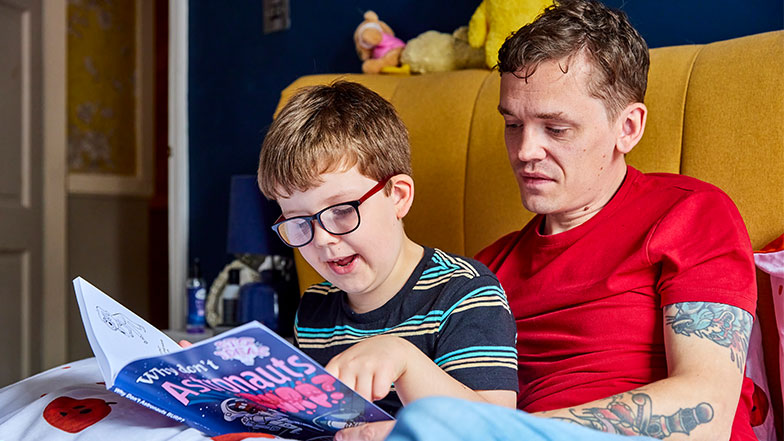Education support
Finding the right support for your child at school, college or nursery can be difficult, but we’re here to help – every step of the way.
Your child deserves the same opportunities as everyone else to learn, grow and develop the skills they need to live the life they choose.
From the day they’re born right up to the age of 7, our specialist education support service offers guidance and advice tailored to your child, wherever they are on their journey, whatever level of support they need.
We give you the tools and advice to make your own informed decisions about what’s best for your child. We’re here for you whenever you need us.

Education information and advice for 7+
In partnership with Guide Dogs, Thomas Pocklington Trust’s (TPT) Education Information Advice and Guidance Service supports blind and partially sighted students aged 7+, their parents, carers, and the professionals that support them. The service provides bespoke, tailored advice for students navigating primary, secondary, further and higher education.
Further support from TPT’s Education Service
-
Free student focused programme, STEP (Supporting Transitions, Enriching Progress), supporting the transition into sixth form, college or university.
-
Student volunteering opportunities to develop skills and make meaningful change.
-
Training for professionals supporting blind and partially sighted students.
-
Impactful online resources on education and technology.
Mobility and independent living skills training
Guide Dogs is the largest employer of specialists dedicated to helping children and young people with sight loss. We work with local authorities to provide mobility and independent living skills training that could help your child at school and home. This includes learning how to navigate safely around school, such as through doorways and up and down steps, and important daily skills, such as techniques to locate specific objects, preparing food and managing their appearance.
It’s important to consider these skills and training when your child starts at a new school and to prepare well in advance.
You might also like...
Do you need help?
Please don’t hesitate to contact us for more information.



